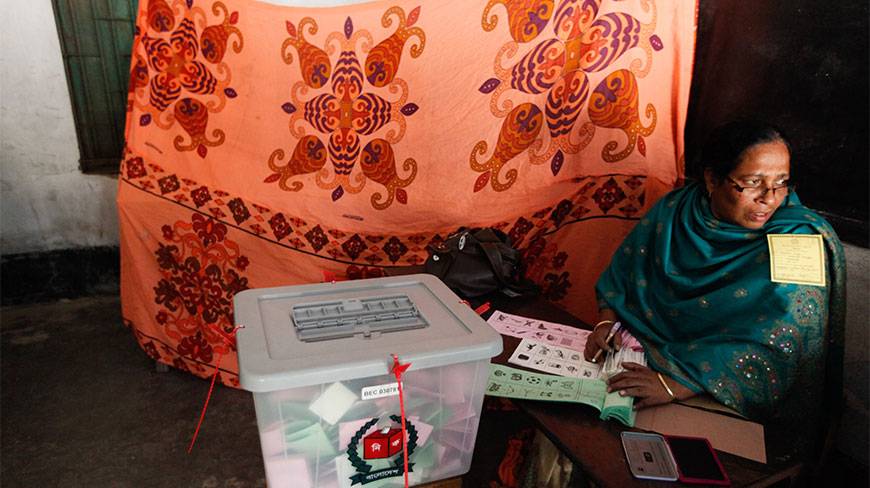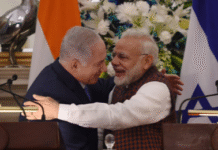It seems as though reports of the BNP’s death may have been greatly exaggerated.
There is no question that the party’s ability to mobilise on the streets has been compromised (no bad thing) and it may well have been outsmarted and outmaneuvered by the AL when it came to the January 5 elections.
But the first phase of the upazila chairman elections suggests that the party is in good shape when it comes to getting out the vote, and in a democracy surely that is the one criterion that really counts.
BNP-backed candidates won a comfortable plurality of the seats available, and their claims that they would have won even more had the vote been fairer are certainly plausible.
Either way, the point is that candidates backed by the BNP and its allies won well over half of the 97 UZ chairman posts up for grabs, while AL-backed candidates bagged less than a third.
Any irregularities were able to be reported in real time and covered by the media, with the EC making credible promises to investigate.
In short, the results were not only a success for the BNP, but also, when you think about it, something of a success for the AL. The AL had long been touting its fine record in administering local level polls over the past five years as evidence that it could be trusted to hold the January 5 national elections.
It is too early to make a final call on this, but if the upazila elections continue in the same vein as they have started, they will give considerable weight to the AL argument that BNP fears of electoral misconduct were overblown.
The BNP does not have to start trusting the AL, it merely needs to consider the logistical difficulties of stealing an election in this day and age. It is not that elections cannot be stolen, it is just that they cannot be stolen without everyone noticing.
Had the BNP taken part in the January 5 elections, it is hard to see how it would have been much worse off.
They may well have won the election had they participated, regardless of machinations (if any) on the part of the ruling administration.
Had the AL rigged the election, as BNP were sure they would, it would have provided BNP with a much stronger casus belli to oppose the current government than it has now.
The final option would have been that the AL might have squeaked by in a relatively fair election. Clearly, it was this option that weighed on the BNP much more than the possibility of the AL stealing the election.
But surely that would have been better than where they are now
In the final analysis, boycotting an election only makes sense if you can prevent the election from taking place or create enough of a ruckus to ensure fresh elections soon thereafter.
Well, as they say, hindsight is always 20-20, and perhaps the BNP truly believed that a white knight would ride to its rescue and postpone the January 5 elections, or that public disenchantment would be so great that the AL would have no option but to go for fresh polls immediately.
Either way, the events of the past few months should have taught the BNP something. The first is that a campaign of violence is not only wrong and not only likely to harm their credibility in the eyes of the people, but that it does not and will not work.
The correlation between the abandonment of violence and the results of the upazila polls should be lost on no one.
The lesson here should be clear: Not only should the BNP come to and contest every election that it can, but that it needs to abandon violence, and especially violence that targets innocent civilians, as a means to press its case.
Imagine if the BNP had announced in September that it would take part in the election and had started campaigning then.
It could have taken up the AL offer of seats in the interim cabinet, including the Home Ministry, and it might even have been able to force a neutral head of the interim government.
Even with the PM at the head of the interim government, the threat of a last minute boycott could well have been enough to have kept the process honest. And had it not, then a last minute pullout would have been far more effective than a pre-emptive boycott.
So where should the BNP go from here? As the Dhaka Tribune poll revealed last week, the Bangladeshi public still wants a fresh election before too long.
I remain in favour of the caretaker government to hold elections and the polls still show that that is the wish of a healthy majority of the population.
But the BNP needs to consider not whether an interim government would be fair or trustworthy, but whether a caretaker administration is necessary for them to win a general election.
They have no ability to force the government to reconstitute the caretaker government system and returning to the politics of the street would only once again send their popularity and credibility plummeting.
Realpolitik would suggest that they go for the best deal they can get, which would be to push for fresh elections under an interim government arrangement of their choosing, and to push their case through non-violent means.
They might be surprised just how effective and difficult to resist such a tactic would be.
Source: Dhaka Tribune










